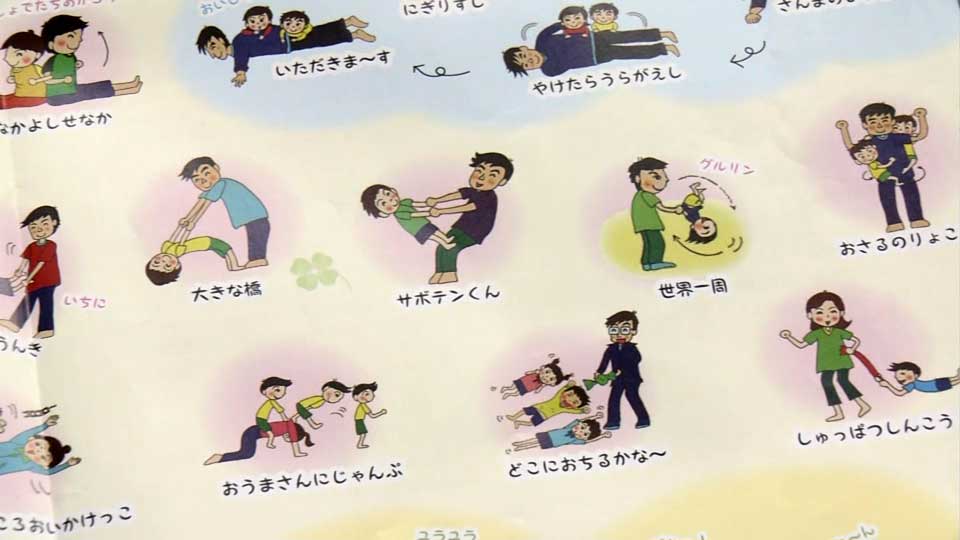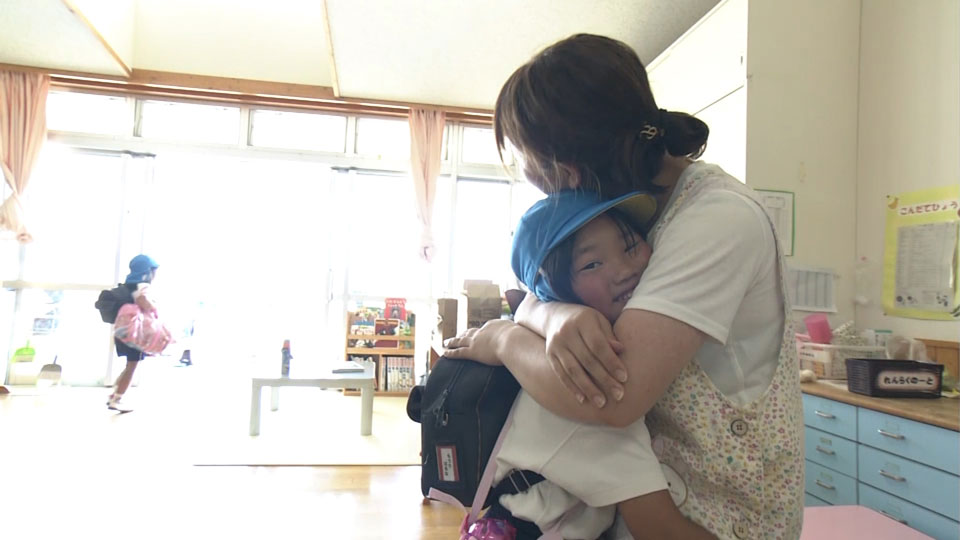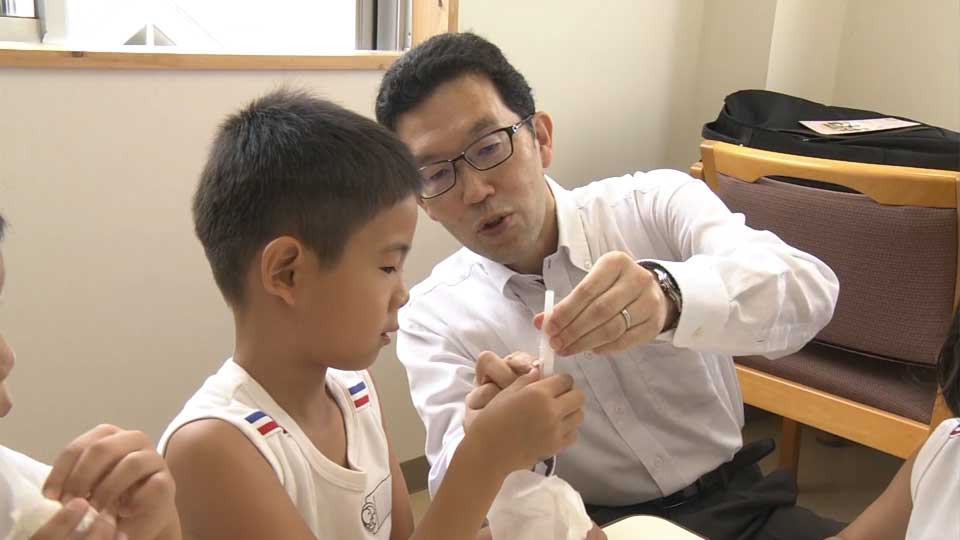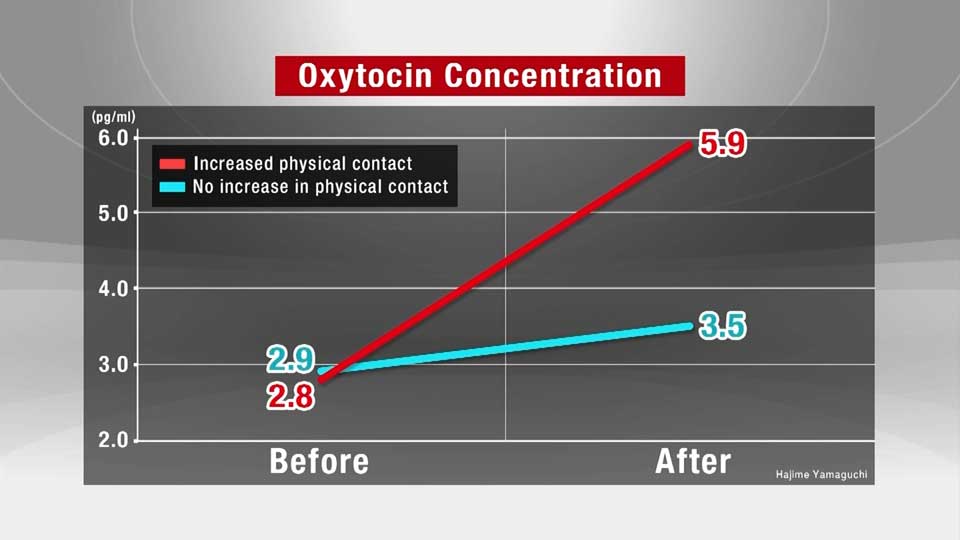Kakegawa city's effort
Give your child a hug, say officials in the city of Kakegawa, or play a game of pat-a-cake with them. The town in Shizuoka Prefecture is encouraging parents to have more physical contact with their offspring in a culture where people tend to shy away from touching.
The local childcare department has been sending out brochures describing the positive effects of physical contact for youngsters.

"After reading it, I became more aware of the importance of touch -- not just carrying my child, but having as much physical contact as possible," says one mother.
The officials say many parents are having difficulty connecting with their children as families become busier and more isolated from the community.
Chikako Sawazaki, head of what's called the Children Brilliant Division of Kakegawa says: "The municipal government is aware that many parents need help to raise their children, and promoting physical contact is one way to support them."
Local authorities have also been asking staff at kindergartens and nurseries to do more physical play with the little ones.

Tests conducted in a childcare facility
The Kodomohiroba Anri nursery and kindergarten has become a testing ground for the new approach. And the staff there say they have noticed a difference in the children's behavior.
"They smile more and become very happy when the teachers play with them and have more physical contact," says the childcare worker.
Hajime Yamaguchi, a psychology professor, has been monitoring the results. He studies how physical contact affects the mind and body.
Professor Yamaguchi measures the concentration of oxytocin in the preschoolers' saliva.

Oxytocin is a hormone that's released after positive physical contact. Research has shown that higher levels are linked to a range of benefits, like lower stress levels and a stronger immune system.
"For example it weakens the activities of the amygdala, which lessens anxiety, which makes it easier to trust other people," says Professor Yamaguchi.
After the first three months, the children's oxytocin levels more than doubled.

In the family home
As part of the study, the nursery asked Noriko Aoki to increase physical contact with her son and daughter at home.
Aoki says it can be hard to find time, as a working parent, but she looks for opportunities while doing her everyday chores at home.
"We hold hands or I carry them, while I'm moving around," says Aoki.“Every time I touch them, I do it in an exaggerated manner.”
Her husband Yuji also got on board, and says he noticed a change in himself too.
"I feel much kinder now, to the children of course, but also at work," he says.
Kakegawa officials say the program has been drawing interest from other municipalities. So more youngsters in Japan may soon benefit from this hands-on approach to child-rearing.

